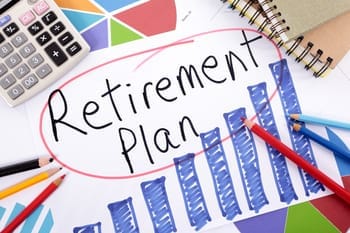Trying to overcome debt problems is a hard, emotionally draining process. For many, it seems like a hopeless spiral of missed payments, juggling credit cards, selling treasured possessions, harassing calls from creditors, and growing interest penalties. If you find yourself in this situation, you need help. When attempts to pay off your debts and to negotiate with your creditors have failed, it is well past time to speak with an attorney for some relief.
For some people, bankruptcy is the only viable option for this relief. But bankruptcy is an option of last resort and there is a lot that a person must weigh before proceeding. When it comes to bankruptcy, we often hear concerns from clients about their retirement savings. Understandably so, as our retirement accounts are a culmination of our lifetime of work. Further, we rely upon our retirement savings to live once we’re of retirement age. It is a big deal. So the key question is: what impact does bankruptcy have on your retirement plan?
Your Retirement Savings Are Safe in Bankruptcy
The short and simple answer is that your retirement plan is generally safe in bankruptcy proceedings. It would go against public policy for bankruptcy proceedings to attach to a person’s retirement plans. If you think about it, the last thing the government wants is to deplete a person’s retirement accounts to the point that they become entirely dependent on government money when they can no longer work.
Under both Chapter 7 and Chapter 13 bankruptcies, retirement accounts are exempt from bankruptcy proceedings.
This includes the following types of retirement plans:
- 401(k), 403(b), and 457(b) plans;
- Keoghs;
- IRAs-some states have an exemption limit for IRAs. Fortunately under New Jersey law, a Roth IRA, SIMPLE IRA, and SEP IRA are entirely exempt
- Defined benefit plans; and
- Profit sharing plans.
Specifically, for purposes of Chapter 7, your retirement plan does not count toward your assets that the bankruptcy trustee can sell off. Under Chapter 13, your retirement plan does not factor into how much you will have to pay under the terms of your payment plan.
Unfortunately, if you are already retired and receiving payments, you should ask your attorney about how bankruptcy may affect those payments. That is because these payments may be treated as income vulnerable to creditors or a payment plan.
Let Levitt & Slafkes, P.C. Work For You
Your retirement matters to you and your future. We appreciate this and will fight for your financial future. At Levitt & Slafkes, P.C., we pride ourselves in providing smart, effective legal advice. We understand that our clients are making big, life-altering decisions and do not take our responsibilities lightly. Let us help guide you toward financial relief. Contact Levitt & Slafkes, P.C., at (973) 323-2953, or reach us online to schedule a free consultation.
We are proudly designated as a debt relief agency by an Act of Congress. We have proudly assisted consumers in filing for Bankruptcy Relief for over 30 years.



